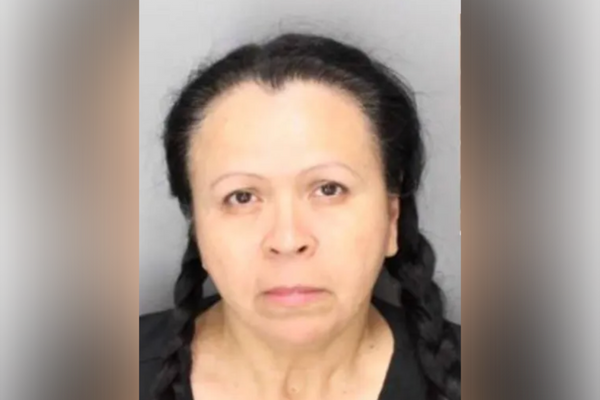April 27--They came from as far as Israel and as near as the South Side of Chicago.
They were old and young, singers and instrumentalists, composers and improvisers, leaders and followers and, in many cases, many of these roles at once.
But the dozens of musicians who took the stage for a four-hour concert marathon Sunday night at the University of Chicago's Mandel Hall shared a single, inspiring goal: to celebrate, honor and reflect upon the 50th anniversary of an organization that changed the way we perceive music, the Association for the Advancement of Creative Musicians (AACM).
That free-ranging, free-thinking, free-spirited collective emerged half a century ago on the South Side, when jazz in Chicago -- and across country -- was facing an existential crisis. With clubs closing, jobs disappearing and rock 'n' roll running practically everything else off the radio dial, a group of Chicago's African-American jazz musicians refused to surrender. Instead, they empowered themselves, putting on their own concerts, launching their own recordings and creating bands and musical methods that defied tired convention and popular expectation.
They did so under the banner of the AACM, formed on May 8, 1965 and clearly still flourishing in a venue that served as one of its early homes, Mandel Hall.
"What's happening, y'all?" performance poet and AACM chairman Khari B. shouted to the capacity crowd before a note was sounded, his signature exuberance well-suited to the occasion.
"I'm so glad the organization has thrived for 50 ... years. ... I want you all to receive the healing that we're going to make tonight. Because that's what this music does."
Well, that and much more. It incites and excites, it provides balm and hope, it looks back to the African pre-history of jazz and ahead to still-incipient sounds and idioms in the making. It takes shape in uncounted bands, large and small, each free to pursue its singular mission, all linked by the AACM's reverence for black musical tradition but also by a desire to search out new horizons in sound.
Harpist-vocalist Maia opened the music-making, her celestial arpeggios and chanted vocals alluding -- first and foremost -- to the spiritual underpinnings of the AACM's art. It didn't take long before she was intoning the name "Cohran, Cohran, Cohran," a thoroughly appropriate reference to Kelan Phil Cohran, an AACM co-founder who will turn 88 on the AACM's official birthday, May 8, and later would bring the serenity of his music-making to the stage.
Maia's passages of relative calm soon gave way to the pulsing music of saxophonist-bandleader Ernest Dawkins' "Sketch for the AACM at 50 Years," the AACM ensemble punching out a telegraphic riff accompanying Khari B.'s sermon in rhyme. The effect would have been greater if we could have discerned every syllable that Khari B. fired off, but even with the sonic imbalance there was no mistaking the message of uplift. There's music in Khari B.'s delivery, the dips and rises and swoons of his vocals underscored by his self-styled, in-the-moment, whirling dervish choreography. Add to this Corey Wilkes' piercing high notes on trumpet, Avreeayl Ra's rolling thunder on drums and Ann Ward's cascading chords on piano, and you had a template for what was yet to come.
Perhaps some in the audience were perplexed when Khari B. and Coco Elysses began gliding through the house on roller skates, while the band churned out the nearly manic phrases of "MEDICINE: Laughter is the Best/for Ameen Muhammad." But in remembering the late AACM trumpeter-composer Muhammad -- a joyous man of music if ever there were one -- the musicians and skaters offered an antidote to grief: riotous life, epitomized by the startling sight of two artists traveling nearly airborne before our eyes (and ears).
Longtime AACM multi-instrumentalist and past chairman Douglas Ewart fronted a still larger gathering of players imaginatively titled the Ancestors Spiral Galaxies Ensemble, its music beginning with the magisterial baritone of singer-poet G'Ra rumbling the names of AACM icons past and present: Muhal Richard Abrams, Steve McCall, Joseph Jarman, Phil Cohran. Ewart presided over an exquisitely shimmering orchestral sound, with multiple voices -- male and female -- improvising freely.
By the concert's second half, words began to pour forth as eloquently as music.
"One of the important things about the association is that they grow their own," said Carol Adams, retired President and CEO of the DuSable Museum of African American History, as she and others prepared to hand out awards.
"They get here from here," meaning the South Side remains fertile ground for new waves of AACM figures. "I think it's a Chicago thing."
When it came time for Dawkins to take the microphone, he crystallized what many musicians have felt about the organization.
"When I came into the AACM, I didn't come to be a star," he said. "I came to nurture an institution."
For the evening's grand finale, a dramatically expanded version of the famous Great Black Music Ensemble -- which hasn't been performing nearly as often as one would wish -- crowded the Mandel Hall stage with more instruments and humanity than one might have thought possible.
Cohran sat front and center, exuding tranquillity and peace, to this day a spiritual father to everyone on stage and to the organization he helped invent.
"Everyone told my mother that I should take music lessons," he said, softly, referring to his childhood in Oxford, Miss., "and I guess this is the result."
Then Cohran began to play his frankiphone -- a self-made, hand-held instrument that's essentially an African mbira, or "thumb piano" -- saying a great deal with a few, carefully selected pitches conceived far outside the Western scale.
Later in the evening, Saalik Ziyad drew bright splashes of color from the ensemble in "Esoteric Intrusive Ness." Renee Baker opened "Untitled" with an all-over-the-flute solo from Nicole Mitchell followed by whirring instrumental lines and chorale-like vocals. And past AACM chairman Mwata Bowden took a few moments to thank AACM figures from around the globe who had traveled here for the great occasion. That included fiery alto saxophonist Sar Abshalom Ben Shalomo from Israel, tenor saxophonist Chico Freeman (Von Freeman's son and George Freeman's nephew) from Europe and tenorist Kidd Jordan from New Orleans.
These artists and their many colleagues conjured cathartic waves of warm, enveloping sound in "Well Woven Web," practically everyone on stage chanting "It's our 50th anniversary, 50 years of Great Black Music."
As the harmonies and dissonances washed over us, Cohran's words from earlier in evening echoed in memory: "I don't think that this could happen in another city," he said. "I know it."
This night, plus the past 50 years, proved his point.
Reich is a Tribune critic.
hreich@tribpub.com







